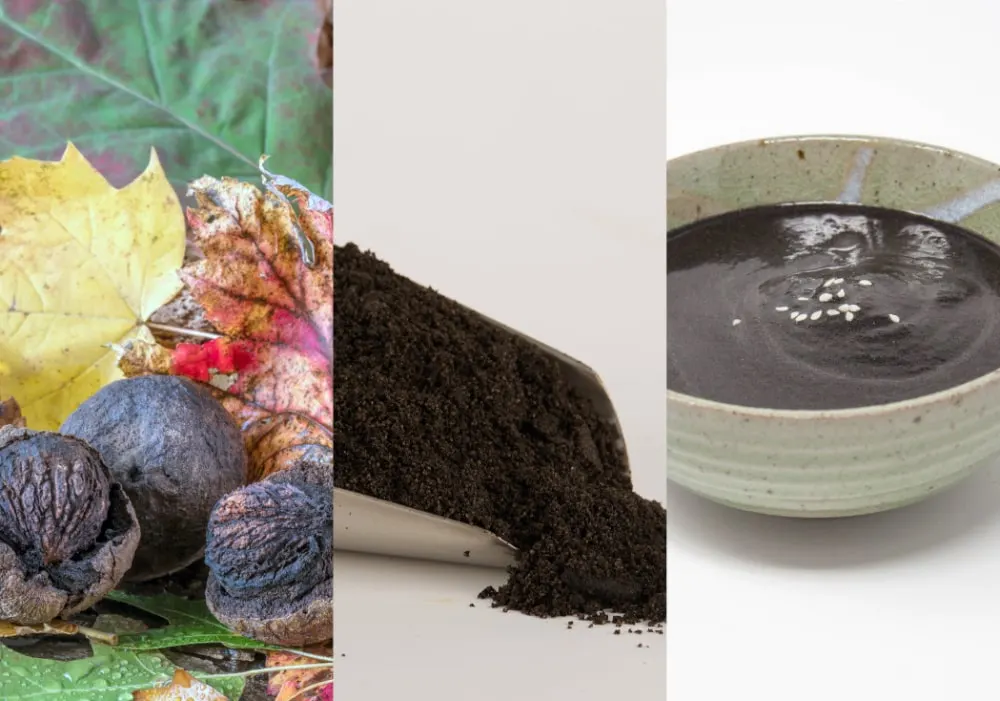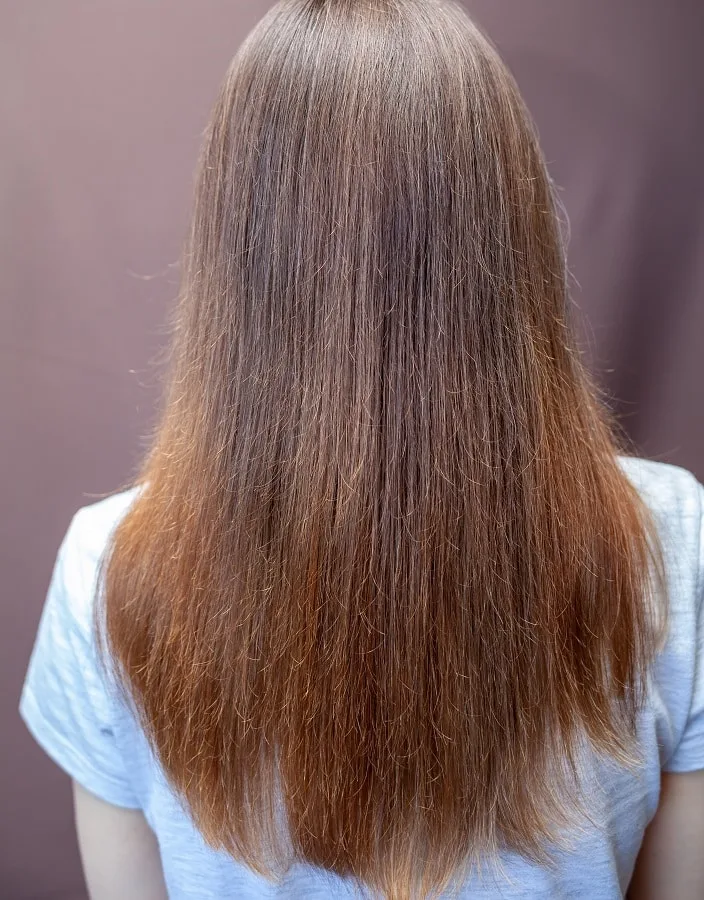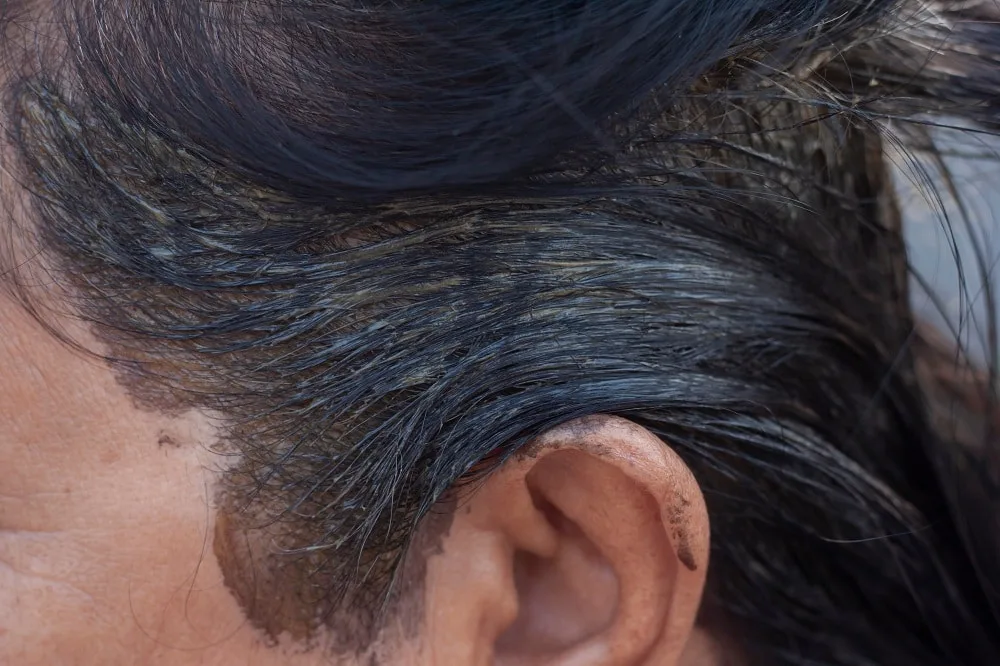If you enjoy dyeing your hair, you know how expensive professional services and even at-home box treatments like black walnut powder hair dye can get.
As it grows in popularity as a clever alternative to frequent salon trips, you should know the side effects of black walnut powder hair dye.
Please continue reading to learn more about black walnut powder hair dye and its potential consequences.
What Is Black Walnut Powder Hair Dye?

Black walnut hair dye is an excellent natural option for those looking to tint their hair a darker shade of brown or black. So how does this dye work?
Black walnut powder hair dye contains the outer shells of black walnuts. This part of the nut contains organic substances like tannin, which makes a highly potent dye. Aside from hair coloring purposes, people also use black walnut dye as a wood stain or for clothing.
You can purchase black walnut powder online or make it yourself if you live in an area with these trees. Treatment is similar for both methods.
Either boil the black walnut powder or crushed walnut shells in a pot of water, let the mixture cool, then soak your hair. Drench your hair longer for darker results.
Side Effects of Black Walnut Powder Hair Dye
Here are some of the most common side effects of black walnut powder hair dye, from mild to more dangerous.
Risk of Defectiveness

One mild side effect of using black walnut powder dye is that it may not work on your hair for a few reasons.
- Previously dyed hair: If your hair already has artificial color from a professional service, box dye, or other natural dyes like henna, black walnut might not take.
- Hair products: Silicones prevent the stain from sticking because they act as a protective layer coating your hair.
- Quality walnut powder: The product could have additives that take away from its staining effectiveness.
High Stain Ability

The chemical that makes black walnuts great for hair dye is tannin. However, tannin produces concentrated liquid, meaning it stains anything it touches. This staining ability is excellent for hair but not so much for t-shirts and countertops.
Wear gloves, preferably several layers, if you use black walnut hair dye. Wear old clothes you do not mind ruining. When making the hair dye mixture, use stainless steel pots and utensils only.
Be careful when rinsing the black walnut dye out of your hair. Do not stand and rinse it out in the shower or with a hose. The dye will drip down your body and stain your skin.
Health Risks for Pets
While black walnut powder poses potential risks to humans, it is downright dangerous for some of your four-legged friends, especially dogs and horses.
Exposure to any part of the black walnut can produce harmful effects, including digestive problems.
Cat owners have less to worry about when using black walnut powder hair dye. Black walnuts are non-toxic to felines.
Health Risks for Humans
People with known tree nut allergies should avoid black walnut powder at all costs. The reaction can range from mild to severe, depending on an individual’s sensitivity.
It’s possible to treat mild cases with over-the-counter allergy medicines, but you should seek immediate medical attention if you experience any of the following:
- Facial swelling
- Difficulty breathing
- Nausea and vomiting
- Dizziness
- Heart palpitations
Additionally, every part of the black walnut tree contains juglone, an organic chemical that protects it from threats like parasitic insects and deadly fungi.
While juglone has some protective qualities, it can be toxic to humans if applied topically to the skin. Small concentrations may cause mild adverse side effects like skin irritation and blisters, even with short-term use.
Daily use may increase the chances of developing cancers of the mouth, especially the lip and tongue. Women who are pregnant or breastfeeding should avoid using black walnut powder altogether.
While using black walnut powder hair dye might be a fun experience, it is not without a few risks. While some black walnut powder hair dye side effects seem mild, others are more severe, especially if you have tree nut allergies.
Now that you understand the potential side effects of black walnut powder hair dye, you can decide if it is right for you.
FAQs
Using black walnuts is an effective hair-staining method for those interested in dyeing their hair any shade of brown.
How long black walnut hair dye will last depends on how often you wash your hair and what products you use. Typically, this dye lasts a few months before fading.
Black walnut hair dye is not permanent, as it will fade after several washes.
As long as you are not allergic to tree nuts, the black walnut dye should be safe for your hair and scalp.
If you are unsure or have skin sensitivities, try doing a patch test on your arm to see if you have any reaction. You could also test a few strands of hair with the dye beforehand to see how well your hair takes the color.
You May Also Like
